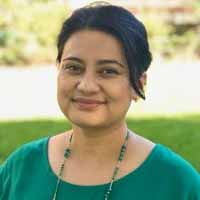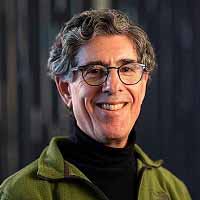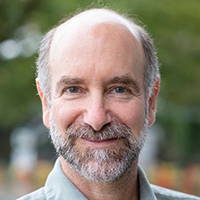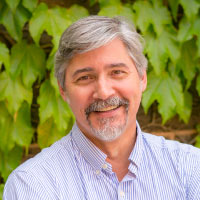A new course through the University of Wisconsin–Madison Nelson Institute for Environmental Studies is teaching students to build a path towards resiliency and wellbeing in the face of climate change and eco-anxiety. The three-credit course, Resilience in the Anthropocene: Learning to Cope with Eco-Anxiety, Climate Grief and Solastalgia will introduce undergraduate and graduate students to contemplative practices and science-based interventions that will help students to identify, and manage, the stress and anxiety related to environmental challenges.

The limited-capacity eight-week course will be held June 20 through August 14, 2022 and will be led by Dekila Chungyalpa, director of the Loka Initiative with the Center for Healthy Minds, Richard Davidson, the William James and Vilas Professor of Psychology and Psychiatry and founder and director of the Center for Healthy Minds, and Jonathan Patz, the John P. Holton Chair in Health and the Environment and director of the Global Health Institute.
“I first began experiencing eco-anxiety and climate distress in the mid-2000s when I worked as the World Wildlife Fund’s U.S. Director for the Greater Mekong Field Program,” said course instructor Dekila Chungyalpa. “Field conservation can be extremely rewarding and equally challenging as well. Positive outcomes are sometimes few and far between and meanwhile you and your colleagues spend every free moment of every day thinking about the threats to biodiversity and local community and projecting different future scenarios with increasing concern.”

After a few years in the field, Chungyalpa noticed an onset of grief and anxiety symptoms.
“I slowly started to realize that I was not alone,” Chungyalpa said. “However, there was no comprehension at that time about what conservation and climate professionals could be struggling with, in terms of the emotional and mental impacts of the environmental and climate crises. Most often, these emotions were chalked up to burnout. However, in 2009, I came across and read Glenn Albrecht’s paper on solastalgia and it was as if a lightbulb went off in my head. There was a term that described what I and so many of my peers were experiencing and ever since then, I have advocated for programs that address mental and emotional wellbeing for environmental and climate leaders.”

Chungyalpa hopes that this course will further this goal by starting a conversation around eco-anxiety and teaching future environmental leaders how to manage these emotions.
Co-instructor Richard Davidson shared Chungyalpa’s eagerness to be a part of a course aimed at helping students to identify and manage emotions in a changing world. He is looking forward to introducing students to a variety of contemplative practices such as mindfulness, contemplative practices focused on interdependence, and nature immersion which can assist them with managing the stress associated with climate change and environmental issues. Davidson is also pleased to work with students as they evaluate interdisciplinary science and scholarship around eco-anxiety, climate grief, solastalgia, and other conditions.

“The data on climate change has the effect on many people that is akin to what we as psychologists would call a helplessness induction. People just throw up their arms and it just seems so dire that they feel helpless,” Davidson said. “So, one of our motivations is to help those who are engaged with this issue of climate change to have sufficient personal resilience and vitality so that they will be as effective as they possibly can be as change agents in the world.”
“The data on climate change has the effect on many people that is akin to what we as psychologists would call a helplessness induction. People just throw up their arms and it just seems so dire that they feel helpless,” Davidson said. “So, one of our motivations is to help those who are engaged with this issue of climate change to have sufficient personal resilience and vitality so that they will be as effective as they possibly can be as change agents in the world.”
As a part of the course, students will have both in-person and online instruction. This will include presentations from Indigenous leaders, psychologists, filmmakers, and state representatives as well as in-person outdoor experiences.
More specifically, speakers will include Paul Robbins, the Nelson Institute dean, who said, “We live in an era of loss. Lost species, lost landscapes, lost languages and cultures. But, as anthropologist Laura Ogden helpfully reminds us, we can also still experience wonder: the word is full of thriving, adaptive beings and human communities, capable of inspiring and surprising us. There can and should be a way to live in a state of both loss and wonder. This view is what I hope to bring to this exciting course.”
Other speakers include Aaron Bird Bear, the director of Tribal Relations at UW–Madison, Elder Jancie Rice of the Ho-Chunk Nation, Representative Francesca Hong, and Susan Clayton, a professor of psychology at the College of Wooster and the leading author for Mental Health and Our Changing Climate, the first report on psychological impacts of climate change by the American Psychological Association that first coined the term ecoanxiety, among others.
Chungyalpa shared that bringing a variety of course instructors and guest lecturers together for this course is not only unique, but an important part of approaching this course through the lens of intersectionality and justice.
“This course signifies a new way of approaching environmental education; teaching students how to build inner resilience as well as community and ecological resilience. We want to equip students with everything they need to become adaptive and resilient environmental and climate leaders and solution architects,” Chanugyalpa said. “This requires that they not only learn to identify their own emotions but that they also understand the psychological and emotional impacts of the environmental and climate crises on others, particularly people from vulnerable communities. Centering the course on intersectionality and justice is crucially important for that reason as is grounding students in the reality of what these issues mean for our local community in Madison.”
Chungyalpa also noted that the course curriculum was developed based on the existing research, which suggests that young people, Indigenous peoples, and poor communities of color bear the worst consequences of environmental degradation and climate change, and environmental and climate professionals, who are all more likely to experience psychological and emotional distress due to environmental degradation and climate change.
“Instead of ignoring what is a rapidly growing phenomenon, the Loka Initiative in partnership with the Nelson Institute, the Center for Healthy Minds, and the Global Health Institute, decided to bring the best of our expertise together and provide resources from the environmental education, global health, and mental health fields so that we could prioritize strengthening the inner resilience of our students,” Chaungyalpa said. “As far as we can tell, nothing like this exists yet! We go beyond an academic examination of the different mental and emotional effects of the environmental and climate crises and provide a range of wellbeing tools for students to explore and apply as it suits them best.”
Davidson echoed that sentiment, “I don’t think that a course like this exists that is co-taught by this kind of radically interdisciplinary team. And so, to have climate scientists, physicians, psychologists, and neuroscientists come together in this way is truly unique.”
Patz, who will not only serve as co-instructor, but will also bring his expertise as leader for the United Nations Intergovernmental Panel on Climate Change (IPCC), added that this course is not only unique, but essential given today’s current human and planetary health concerns.
“Today’s looming global environmental crises, such as climate change and rapid deforestation, demand full and urgent attention. This course endeavors to convene leading figures from across society to engage in bidirectional learning and empowerment to more effectively grapple with human-caused environmental destruction that surrounds us in this new age of the Anthropocene.”
Learn more about this course and other summer 2022 courses offered by the Nelson Institute here or reach out to your advisor for additional information.